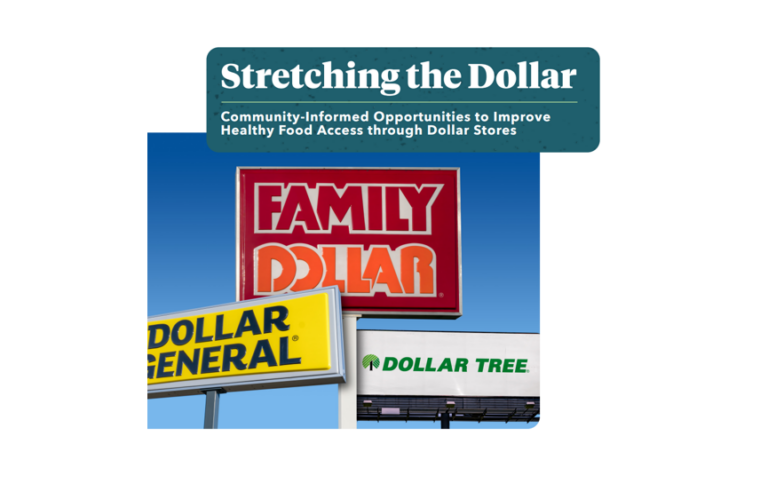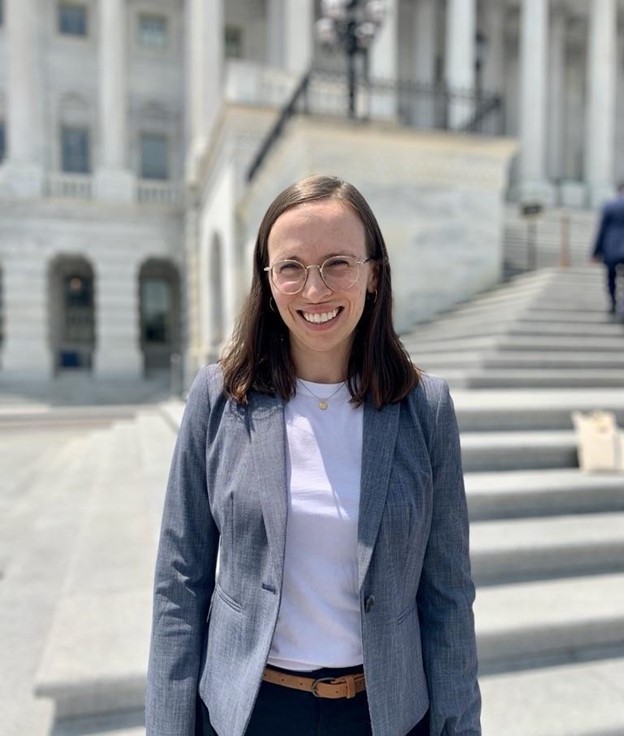
Children and adults in the United States consume more calorie-dense, nutrient-poor foods and fewer fruits, vegetables, and whole grains than recommended by the US Dietary Guidelines for Americans. These non-nutritious diets tend to elevate the risk of chronic health conditions such as type 2 diabetes, heart disease, obesity, and some cancers.
A major reason for these nutritional deficiencies lies in how grocery stores market their products. Large supermarkets receive billions of dollars each year from food and beverage manufacturers to market to potential consumers. These tactics overwhelmingly promote unhealthy products like “junk” food by buying up product real estate inside stores and undergoing aggressive promotions, all to entice shoppers. Manufacturers have largely abandoned traditional television and print publication methods in favor of these aforementioned in-store promotions. In 1968, for example, 72 percent of food marketing budgets were spent on advertising (the remainder on in-store promotions). In 2010, that ratio was essentially reversed, with 70 percent spent on retail promotion).
A small but growing segment of supermarkets are dollar stores, which tout lower prices than their larger cousins. The rapid expansion of dollar stores has a considerable impact on local food markets, especially in terms of access to healthy foods. As these stores proliferate, they not only lead to a decrease in the number of independent grocers but also influence dietary choices by offering a limited selection, heavily skewed towards nonperishable and snack foods. This situation poses significant health implications, especially for low-income households, by reducing access to fresh produce and contributing to the creation or exacerbation of food deserts
Karen Gardner is a senior policy associate for healthy retail at the Center for Science in the Public Interest (CSPI). Gardner, who is based in Pittsburgh, PA, has been at CSPI since April 2022 focusing on influencing federal, state and local policies that encourage access to healthy food, regardless of where people live and shop. To that end, CSPI has worked on improving the availability of healthy food options at dollar stores.
AP—Access to healthy foods can be a problem in certain areas. How do we know what’s being sold, and to whom?

Gardner—Our research examines access to healthy foods, including the inventory and placement of stores, policies affecting store locations, and availability of produce and other healthier options. We contributed to a national research agenda led by Health Eating Research, a part of the Robert Wood Johnson Foundation. The agenda centers on formulating strategic questions that can guide studies to determine how best to support healthy eating. This agenda focuses on understanding what is stocked and sold within stores, where stores that sell healthier items are located, policies that influence store placement, and mapping food stores nationally. Through evidence-based research on these key areas, we aim to gain insights to promote access to nutritious food.
AP—How are scientists and other experts involved with your work?
Gardner—We work with a lot of scientists! We work with a diverse group of scientists, including public health researchers and experts in food safety. Our work also extends to partnerships with mapping specialists, particularly focusing on product placement and marketing strategies within grocery stores, as well as their location and how these factors correlate with race, income inequality, and other social issues. Additionally, we have joined forces with universities to undertake research projects, and we have initiated pilot projects aimed at promoting healthy eating choices in stores
AP—How did you come to work in healthy diet policy and research?
Gardner—I’ve always been interested in food: cooking it, eating it, growing it. This has been essential to my experience. In addition, I’ve been interested in looking at systems that result in inequity and inequality. I discovered economics in college as an interesting way to understand those systems, especially looking at the socioeconomic structures and levers that can either further, or solve, problems of inequality.
I got a degree in economics, started working in a food bank, and got into working in research on food policy, specifically focusing on state and local policy. I used to work for the National Young Farmers Coalition, where I managed organizing and advocacy in Pennsylvania to help beginning farmers get access to land, and funding. We advocated for farmers to be compensated for carbon capture on their farms and passed a bill which gives tax credits to people who sell or lease farmland to beginning farmers.
AP—Could you describe your organization's policy advocacy efforts, specifically focused on dollar stores?
Gardner— Dollar stores are the fastest growing food retailers in the US. Two corporations, Dollar General and Dollar Tree, operate 35,000 stores nationwide. Research shows that dollar stores have limited healthy food options and are more prominent in rural, Black and Latino communities and areas of low income.
We ran a national survey of dollar store use and perceptions of 750 people. In that survey, 82 percent of respondents told us that dollar stores should stock healthier products, and three-quarters said dollar stores should do more to market healthier items, including placing healthy options in prominent areas of the stores.
Our report included recommendations for how dollar store corporate policy, federal policy, state and local policy, and research can contribute to a more healthful food environment.
AP—How are you involved with these science-based policies?
Gardner—We developed a dollar store model ordinance deployable across multiple municipalities with a menu of options for dollar store policies. Additionally, we identified promising policy levers, including potential federal incentives and local zoning approaches, that could persuade dollar stores to improve their community impact by providing better food access and reducing oversaturation. We are also involved with ongoing campaigns across the country, such as in Baltimore, where we have supported research and community involvement in a conditional zoning ordinance that was introduced in city council.
Another major policy change that could improve offerings would be for the US Department of Agriculture to strengthen Supplemental Nutrition Assistance Program (SNAP) stocking standards to better align the Dietary Guidelines for Americans. Right now, SNAP-authorized retailers only have to stock a small number of foods, which isn’t adequate for a healthy diet.
AP—Why should scientists and other specialists get involved with policy issues like yours?
Gardner—It’s important for scientists to be part of all of this. I think that scientists should get involved with public health campaigns and specifically with local and state campaigns because scientists are able to offer a key resource to these campaigns – an ability to sift through the evidence and research behind a policy change and effectively communicate that evidence to stakeholders and legislators.
Dive into the topic of local health initiatives through other ESAL article features.
Do you have a story to tell about your own local engagement or of someone you know? Please submit your idea here , and we will help you develop and share your story for our series.